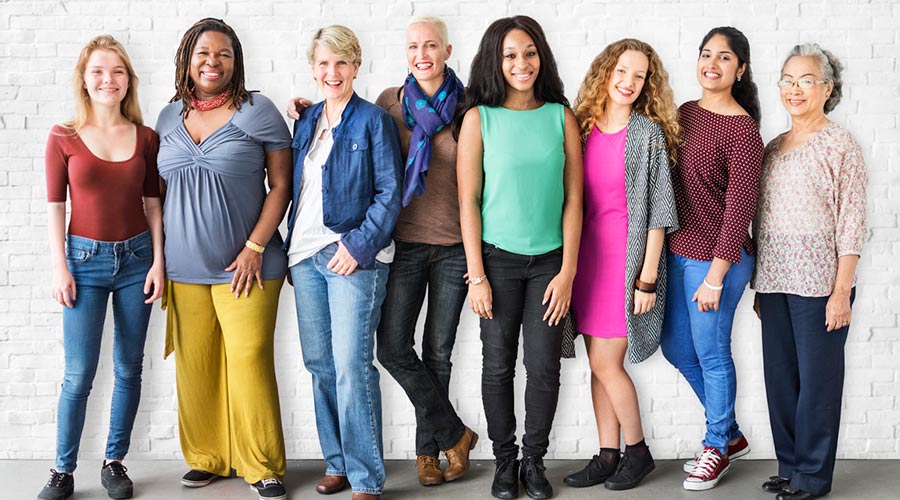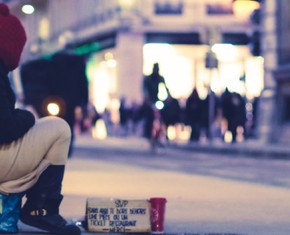The views expressed in our content reflect individual perspectives and do not represent the authoritative views of the Baha'i Faith.
Observed for more than a century now, International Women’s Day collectively calls for global gender equality—and the bold change necessary to make it happen.
Why is that necessary? Well, The World Economic Forum, after surveying the status of women in 144 nations, predicts the gender gap won’t close entirely until 2186. In other words, equal pay for equal work, equal educational opportunities, equal healthcare access and leadership equality for women won’t happen globally—if we do nothing more than we’re doing now—for another 169 years.
That’s far too long. This intolerable timeline means our daughters and granddaughters won’t have equality, and neither will their granddaughters. Yes, we’ve made some progress, but at this rate it will take seven generations from today for the world to get to the equality of women and men.
Should we wait that long?
No. In fact, we don’t have to—instead, we can take bold action now to drive greater, faster and more profound change for our mothers, our sisters, our wives, our daughters and granddaughters. The theme of this year’s IWD—Be Bold for Change—means that the girls and women of the future will thank us if we do.

International Women’s Day can help make that happen, first by reminding us to celebrate the social, economic, cultural and political achievements of women. We know that increased visibility and awareness of gender equity helps drive positive change for women, so on March 8th, why not set aside one day to declare and begin implementing the bold actions you’d like to take as an individual or organization to help women make progress? Your purposeful action, whether individually or collectively, can accelerate gender parity across the world.
(Here’s a thought: since women make up 51% of the world’s population, and there are 365 days in a year, shouldn’t we celebrate International Women’s Day on 51% of those days? If you do the math, that means we ought to celebrate women 186 days out of every year. Men could have the remaining 179 days …)
International Women’s Day recognizes the social, economic, cultural and political achievements of women—and issues a call to action for accelerating the progress of gender parity around the world. IWD helps raise awareness and carry out the fundamental Baha’i principle of equal rights for women and men:
The teachings of Baha’u’llah also proclaim equality between man and woman, for He has declared that all are the servants of God and endowed with capacity for the attainment of virtues and bestowals. All are the manifestations of the mercy of the Lord. In the creation of God no distinction obtains. All are His servants. In the estimation of God there is no gender. The one whose deeds are more worthy, whose sayings are better, whose accomplishments are more useful is nearest and dearest in the estimation of God, be that one male or female. When we look upon creation, we find the male and female principle apparent in all phenomena of existence. In the vegetable kingdom we find the male and female fig tree, the male and female palm, the mulberry tree and so on. All plant life is characterized by this difference in gender, but no distinction or preference is evidenced. Nay, rather, there is perfect equality. Likewise, in the animal kingdom gender obtains; we have male and female, but no distinction or preference. Perfect equality is manifest. The animal, bereft of the degree of human reason and comprehension, is unable to appreciate the questions of suffrage, nor does it assert its prerogative. Man, endowed with his higher reason, accomplished in attainments and comprehending the realities of things, will surely not be willing to allow a great part of humanity to remain defective or deprived. This would be the utmost injustice. – Abdu’l-Baha, The Promulgation of Universal Peace, pp. 374-375.
Interestingly, International Women’s Day (IWD) happens spontaneously—no single governmental or international body, NGO or faith group or women’s network takes sole responsibility. Instead, many different organizations from all sectors of society support this global day, declaring their own annual theme or focusing on one specific aspect of women’s equality. In that sense, IWD may be not only the first global day of recognition for the achievements of women, but the most widespread recognition of the female majority of humanity.
“The story of women’s struggle for equality belongs to no single feminist nor to any one organization but to the collective efforts of all who care about human rights,” says world-renowned feminist, journalist and social and political activist Gloria Steinem.
You can visit IWD’s website and see what people all over the globe are doing to bring about the Baha’i principle of the equality of women.
The Baha’i teachings on the equality of men and women have helped to impel this worldwide push for women’s rights even before it began as a social movement. Baha’u’llah, the founder of the Baha’i Faith, called for the equality of women and men as one of the foundational Baha’i principles; and did so in a dangerous Middle Eastern context in the 19th Century. The Ottoman Empire tortured, exiled and imprisoned him for life as a result. His son Abdu’l-Baha, the exemplar and inheritor of his father’s Cause, advocated globally for the rights of women long before it became safe or politically fashionable. Here, in excerpts from a speech Abdu’l-Baha gave to a women’s suffrage organization in New York City in May of 1912, Abdu’l-Baha called for the equal rights of women in clear and emphatic terms:
… mankind and womankind as parts of composite humanity are coequal and … no difference in estimate is allowable, for all are human. The conditions in past centuries were due to woman’s lack of opportunity. She was denied the right and privilege of education and left in her undeveloped state. Naturally, she could not and did not advance. In reality, God has created all mankind, and in the estimation of God there is no distinction as to male and female …. – Abdu’l-Baha, The Promulgation of Universal Peace, p. 133.
















Comments
Sign in or create an account
Continue with Googleor